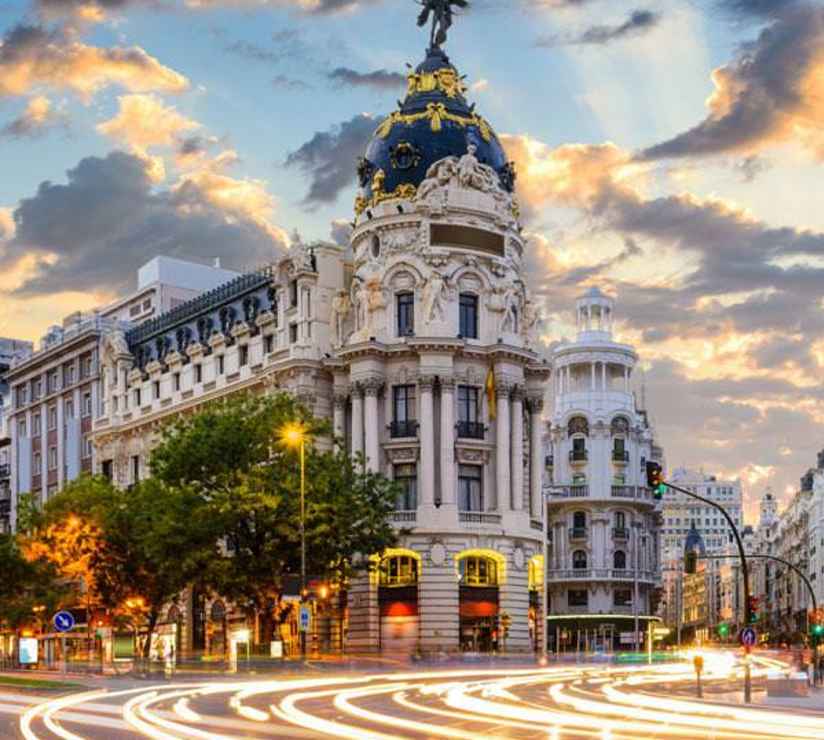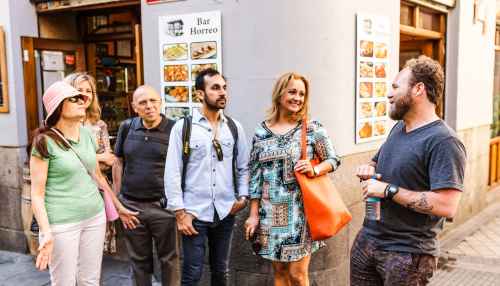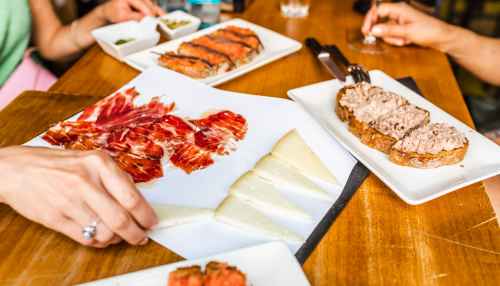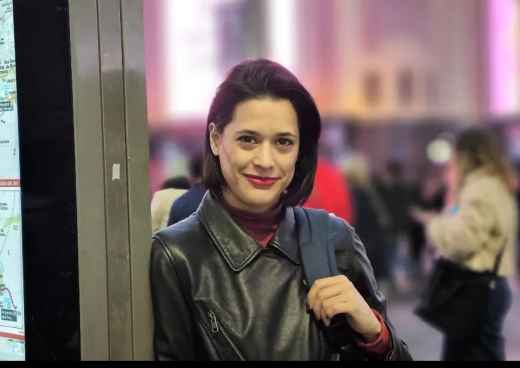Table Of Contents
- Why Munich Travel Starts with Smart Planning
- How to Get Around: Munich's Transit Logic Decoded
- Where to Stay: Picking the Right "City Center"
- Beer Culture Without the Clichés
- What to Eat (And Where Locals Actually Go)
- Seasonal Travel Tips
- Nature + Day Trips: Beyond the City
- Museums, History, and What Most Guides Miss
- Guided Tours: Effortless Ways to See Munich Like a Local
- Safety and Etiquette: Navigating Munich with Confidence
- Money-Saving Tips: How to Experience Munich on Any Budget
- Munich Travel Tips: Logistics, Tickets & the Unexpected
Why Munich Travel Starts with Smart Planning
After eleven years living in Munich, I’ve watched countless visitors struggle with the same basic mistakes. They arrive at Munich airport without understanding how the S-Bahn connects to the city center. They buy the wrong tickets for public transport. They queue for hours at a famous beer hall when better options exist two streets away.
When you visit Munich, smart planning eliminates these frustrations. The city's design was created with logic in mind. Our public transportation connects seamlessly, streets follow clear patterns, and beer gardens operate on predictable schedules.
This Munich travel guide covers essential systems: efficient movement through the city, where locals eat and drink, and which seasonal highlights deserve your time. Whether traveling as a family or solo, these practical insights help you navigate Munich like a resident.
For first timers, don't worry, Munich is known for its clear signage and helpful locals, making it easy to get your bearings even on your first day.
How to Get Around: Munich's Transit Logic Decoded
Munich's public transportation operates on a zone system. The city center sits in Zone 1, covering everything from the central train station to the Englischer Garten. Zone 2 extends to Munich airport and most day trip destinations. Buy a short trip ticket for journeys under four stops, or invest in a day pass for multiple trips.
S-Bahn / U-Bahn
The S-Bahn connects major districts and runs to the airport every twenty minutes. The U-Bahn serves the inner city with six lines intersecting at key stations. Trams fill the gaps, particularly useful for reaching top attractions like specific museums.
Public transport tickets must be validated before travel. Controllers check frequently, and fines start at sixty euros. Buy tickets from machines or through the MVG app.
Munich's bike lanes connect major attractions, extending to the English Garden and along the Isar River. Bike tours operate year-round, making cycling a genuine alternative to public transportation.
A Munich travel agent can provide detailed transit maps and current ticket prices. Day passes offer the best deal for visitors planning multiple stops.
Where to Stay: Picking the Right "City Center"
Munich’s “city center” means different things depending on your priorities. The area around Marienplatz represents the historic core, with walking access to the Neues Rathaus, major museums, and traditional beer halls. Staying near the central train station provides excellent transport connections.
Family's benefit from accommodation within walking distance of Marienplatz. This puts you steps from the town hall and the start of the pedestrian zone. Hotels in this area cost more but eliminate transit time for major attractions.
The Maxvorstadt district offers excellent value with easy access to art museums. Schwabing provides a local atmosphere with numerous restaurants and bars. Both areas connect to the city centre via U-Bahn in under ten minutes.
Consider Munich’s Sunday rhythm when choosing accommodations. Most shops close on Sundays, creating quieter streets, so plan your shopping for weekdays or Saturdays. Popular places to shop include Kaufingerstrasse for major brands and Viktualienmarkt for local specialties. Hotels near the central train station remain active seven days a week, while family-friendly residential areas experience true Sunday calm.
Munich’s tap water meets high quality standards. Carry a water bottle during summer months, as public fountains appear throughout the city center.
Looking for a private city experience in Madrid?
Explore the city with a local who plans a private day just for you; no groups, no scripts.
Beer Culture Without the Clichés
Munich’s beer culture extends beyond Oktoberfest stereotypes. Beer gardens operate from April through October, serving local brews alongside traditional Bavarian food. Visitors can enjoy a range of affordable drinks, including both alcoholic and non-alcoholic options, making Munich’s beer gardens a budget-friendly way to experience local beverages.
The Chinese Tower beer garden in the English Garden attracts both locals and visitors, while smaller neighborhood gardens offer intimate experiences.
Understanding beer hall etiquette prevents awkward situations. Share tables with strangers; this is expected. The famous beer hall Hofbräuhaus delivers tourist expectations: lederhosen, oompah bands, and international crowds. For authentic local atmosphere, try Augustiner-Bräu (Munich's oldest brewery) or Löwenbräu (roots tracing back to 1383).
Beer gardens maintain specific closing times based on noise regulations. Most close by 11 PM on weekdays. Many venues also feature live music during peak season, adding to the authentic Munich atmosphere that family groups particularly enjoy.
Local beer culture includes specific food pairings. Weisswurst appears only before noon, traditionally eaten with sweet mustard and pretzels. Schweinshaxe pairs with darker beers, while lighter options complement fish dishes from Bavaria’s lakes.
What to Eat (And Where Locals Actually Go)
Most restaurants in Munich’s city center cater to tourists, but excellent local establishments exist within walking distance of major attractions. Ratskeller München, located beneath the town hall, serves traditional Bavarian food without the tourist trap atmosphere.
Street food centers around würst stands and pretzel vendors. Leberkäse served with mustard on fresh rolls provides quick, satisfying meals. When you head to major intersections and train stations, pretzel vendors offer genuine Bavarian recipes at reasonable prices.
Water bottle etiquette in restaurants: tap water is free but rarely offered automatically. Request “Leitungswasser” if you prefer tap water over bottled options. Most restaurants gladly provide it.
Local eating patterns differ from typical tourist schedules. Lunch runs from 11:30 AM to 2 PM, with many restaurants closing between 2 PM and 5 PM. Sunday dining requires advance planning, as many neighborhood restaurants close entirely.
Areas near major museums often feature overpriced tourist-focused restaurants. Walk two blocks away from museum entrances to find establishments that serve locals. The Glockenbachviertel district offers excellent dining options within easy reach of the city centre.
Bavarian food extends beyond sausages and pretzels. Sauerbraten and Schweinebraten represent hearty main courses, while Kaiserschmarrn provides a sweet ending to traditional meals. These dishes are part of Bavaria's rich culinary heritage, reflecting the region's traditions. Most restaurants offer English menus.
Seasonal Travel Tips
Oktoberfest
Oktoberfest transforms Munich each September and October, bringing international crowds and dramatically increased prices. Book accommodations months in advance and expect longer public transportation wait times. The festival operates from late September through the first Sunday in October. Oktoberfest is one of Germany's most famous cultural traditions, celebrated for its lively atmosphere and historical roots.
Christmas Markets
Christmas markets begin in late November and continue through December 23rd. Munich hosts multiple markets, from the large traditional market at Marienplatz to smaller neighborhood celebrations. Mulled wine appears at every market, served in commemorative mugs. Prices range from 3 to 5 euros per cup. These festive markets are a cherished part of Germany's holiday season, reflecting the country's rich cultural heritage.
Winter in Munich requires appropriate clothing but offers unique experiences. Many museums extend hours during darker months, and indoor beer halls provide warm gathering spaces. Christmas markets create festive atmospheres perfect for family visits.
Summer brings optimal conditions when you visit Munich. Beer gardens operate at full capacity, outdoor concerts fill the English Garden, and day trips to the Bavarian Alps become practical. Live music venues increase outdoor programming during warmer months.
Seasonal variations affect public transportation schedules. S-Bahn and U-Bahn reduce frequency during winter months, while additional services run during Oktoberfest and major festivals.
Spring and fall provide ideal weather for walking and outdoor activities. These seasons offer the best combination of pleasant weather, reasonable prices, and manageable crowds.
What if your day in Madrid was planned by someone who knows it — and you?
City Unscripted matches you with a local host who creates a private experience based on your interests, not a set route.
Nature + Day Trips: Beyond the City
The English Garden provides immediate nature access within Munich’s city limits. This 900-acre park includes the Chinese Tower beer garden, surfing spots on the Eisbach stream, and extensive walking paths perfect for family exploration.
Day trip options from Munich include destinations throughout Bavaria. These excursions are a great way to experience different regions of the country beyond Munich, giving visitors a broader perspective on what the country has to offer. Starnberg Lake can be reached in forty-five minutes, and provides swimming and boat rentals during summer months. Train connections to Garmisch-Partenkirchen open access to the Bavarian Alps.
The Isar River flows through Munich’s heart, creating green corridors for walking and cycling. Riverside paths connect the city center to suburban areas, passing through parks and offering glimpses of local wildlife.
Nymphenburg Palace sits on Munich’s western edge, accessible by tram in twenty minutes from the city center. The baroque palace and gardens require half a day to explore properly, making it ideal for family day trips.
Munich Residenz, the former royal palace, sits in the city center near Odeonsplatz. The complex includes museums, gardens, and historic rooms. Allow three hours minimum for thorough exploration.
Castle day trips from Munich include Neuschwanstein (two hours by train) and Herrenchiemsee (one hour). Regional train passes provide economical access to these destinations, with return trips easily completed in single days.
Museums, History, and What Most Guides Miss
Munich houses world-class museums that many visitors overlook in favor of beer halls and tourist attractions. The Alte Pinakothek contains one of the world's finest collections of Old Master paintings, while the Neue Pinakothek focuses on 19th-century art.
Many museums close on Mondays, so plan accordingly. If you want to visit museums on a budget, plan to visit museums on Sundays when admission often costs one euro at state museums. The Museum Quarter ticket provides access to multiple venues at reduced prices, making it economical for family visits.
World War history permeates Munich, though markers appear subtly throughout the city. The NS-Dokumentationszentrum provides comprehensive documentation of Munich’s role in Nazi history. Walking tours cover sites where Hitler attempted his Beer Hall Putsch in 1923.
The Asam Brothers’ baroque churches showcase Munich’s architectural heritage. Asamkirche, their masterpiece, sits hidden on a narrow street near the city center.
Guided tours cover specific themes from Nazi history to baroque architecture. However, Munich’s compact size makes self-guided exploration practical for most top attractions. Consider Munich experiences for personalized local insights beyond standard group tours.
The Deutsches Museum, one of the world's largest technology museums, requires a full day to explore thoroughly. Focus on specific floors based on interest.
Munich’s Roman foundations appear in archaeological displays beneath the city center. Understanding these historical layers adds depth to casual wandering through the city.
Guided Tours: Effortless Ways to See Munich Like a Local
Guided tours are one of the smartest ways to explore Munich, especially if you want to experience the city’s top attractions and hidden corners without the guesswork. Whether you’re a first-timer or a returning visitor, there’s a tour for every interest. Bike tours along the Isar River and through the English Garden let you cover more ground while soaking up the city’s green spaces. Walking tours of the city reveal Munich’s layered history, from the ornate Neues Rathaus to tucked-away beer halls where locals gather.
For those fascinated by history, tours dive into Munich’s role in the world wars, expert guides bring the city’s past to life as you stroll past memorials and historic sites. Architecture buffs can join tours of Nymphenburg Palace or explore the city’s baroque churches, while food and drink lovers can sample local beers and Bavarian food in legendary beer halls and neighborhood favorites.
Many guided tours offer skip-the-line access or include admission to top attractions, making them a convenient choice for visitors short on time, these tours provide insider knowledge and a deeper connection to the city’s culture. For a truly local experience, look for small-group or themed tours that match your interests, you’ll leave with stories and insights you won’t find in any guidebook.
Tip
We match you with the right host, not just any guide.Want to experience the real Madrid with someone who lives there?
A fully private experience, planned and led by a local host who tailors the day to you
Safety and Etiquette: Navigating Munich with Confidence
Munich is one of Germany’s safest cities, but a little local know-how goes a long way toward a stress-free trip. When using public transportation or exploring busy areas, keep an eye on your belongings. Pickpocketing is rare but can happen, especially during festivals or in crowded beer halls. Always stand clear of bike lanes when walking; Munich’s cyclists move quickly, and stepping into their path is both dangerous and frowned upon.
Respect for local customs is part of what makes Munich so welcoming. Greet shopkeepers and locals with a friendly “Grüß Gott,” and remember that Sundays are quiet. Most shops close, and the city slows down. If you’re visiting a beer garden or beer hall, it’s polite to wait for an invitation before joining a table, and never leave your beer unattended. Locals appreciate when visitors follow these small courtesies, especially in traditional settings.
Jaywalking is discouraged and can result in fines, so always use crosswalks and wait for the green light. On public transportation, offer your seat to elderly passengers or families with children. By following these simple rules and observing how locals interact, you’ll blend right in and enjoy Munich’s relaxed, friendly atmosphere.
Money-Saving Tips: How to Experience Munich on Any Budget
Munich’s world-class culture doesn't have to come with a hefty price tag. Start by making the most of public transportation: a short trip ticket is perfect for quick journeys, while a day pass, or bus lets you explore the city for less. Many of Munich’s best experiences are free. Stroll through the English Garden, browse the bustling Viktualienmarkt, or wander the historic city center and admire the Neues Rathaus.
If you love museums, plan your visit for a Sunday, when many museums offer admission for just 1 euro. Some guided tours include free or discounted entry to top attractions, so check what’s included before booking. Visiting during the off-season, outside Oktoberfest and Christmas markets, means lower hotel rates and fewer crowds, making it easier to enjoy the city’s culture and history at your own pace.
For affordable dining, skip the tourist traps and try local street food or neighborhood restaurants just outside the main squares. Enjoying a beer in a traditional beer garden is a must, and you’ll often find that prices are lower than in the city’s most famous beer halls. With a little planning, you can experience Munich’s rich history, vibrant culture, and legendary hospitality; no matter your budget.
Munich Travel Tips: Logistics, Tickets & the Unexpected
Air travel to Munich typically involves Munich airport, Germany's second-busiest hub. The airport sits 40 kilometers northeast of the city center, connected by S-Bahn lines S1 and S8. Journey time ranges from 40 to 50 minutes.
Munich travel agents can help with packages that include transport passes, but evaluate whether they match your planned activities. Day passes work well for intensive sightseeing, while individual tickets suit focused visits to specific areas. The Munich travel pass is your ticket to top attractions and public transport in Munich.
Ticket machines accept major credit cards and cash, with English language options available. Mobile tickets through the MVG app provide convenience but require internet connectivity for validation.
The best deal on transportation depends on your trip length and planned activities. Single-day visitors benefit from day passes, while longer stays might justify weekly passes. Calculate costs based on specific planned journeys.
Language barriers remain minimal in Munich's tourist areas, with English widely spoken at hotels, restaurants, and attractions. However, learning basic German phrases enhances interactions with locals.
Emergency numbers in Germany: 112 for medical emergencies and fire, 110 for police. Most Munich hospitals have English-speaking staff, and travel insurance covers emergency medical treatment.
Shopping hours: most stores close at 8 PM on weekdays and 6 PM on Saturdays. Everything closes on Sundays except restaurants, hotels, and tourist attractions.
Currency and payments: Germany uses euros, and most establishments accept major credit cards. However, carry some cash, as smaller restaurants may prefer cash payments.
When you head out exploring, Munich's compact city center makes walking between major attractions feasible. Comfortable shoes are essential, as cobblestone streets can be challenging. Weather changes quickly, so carry layers regardless of season.
This Munich travel guide provides the foundation for efficient, enjoyable Munich travel. Focus on understanding the basic systems; transport, dining patterns, and seasonal rhythms, and you'll navigate the city like a local resident.
Maximilian Köhler has lived in Munich for eleven years, working in urban planning and public transportation policy. He writes about practical travel from a resident's perspective, focusing on efficient navigation and authentic local experiences.
Ready to plan your perfect day in Madrid?
Start your experienceWhat if your day in Madrid was planned by someone who knows it — and you?
City Unscripted matches you with a local host who creates a private experience based on your interests, not a set route.
Want to experience the real Madrid with someone who lives there?
A fully private experience, planned and led by a local host who tailors the day to you
Meet Your Madrid Hosts
A personalized way to explore Madrid’s must-see landmarks beyond the tourist crowds.










